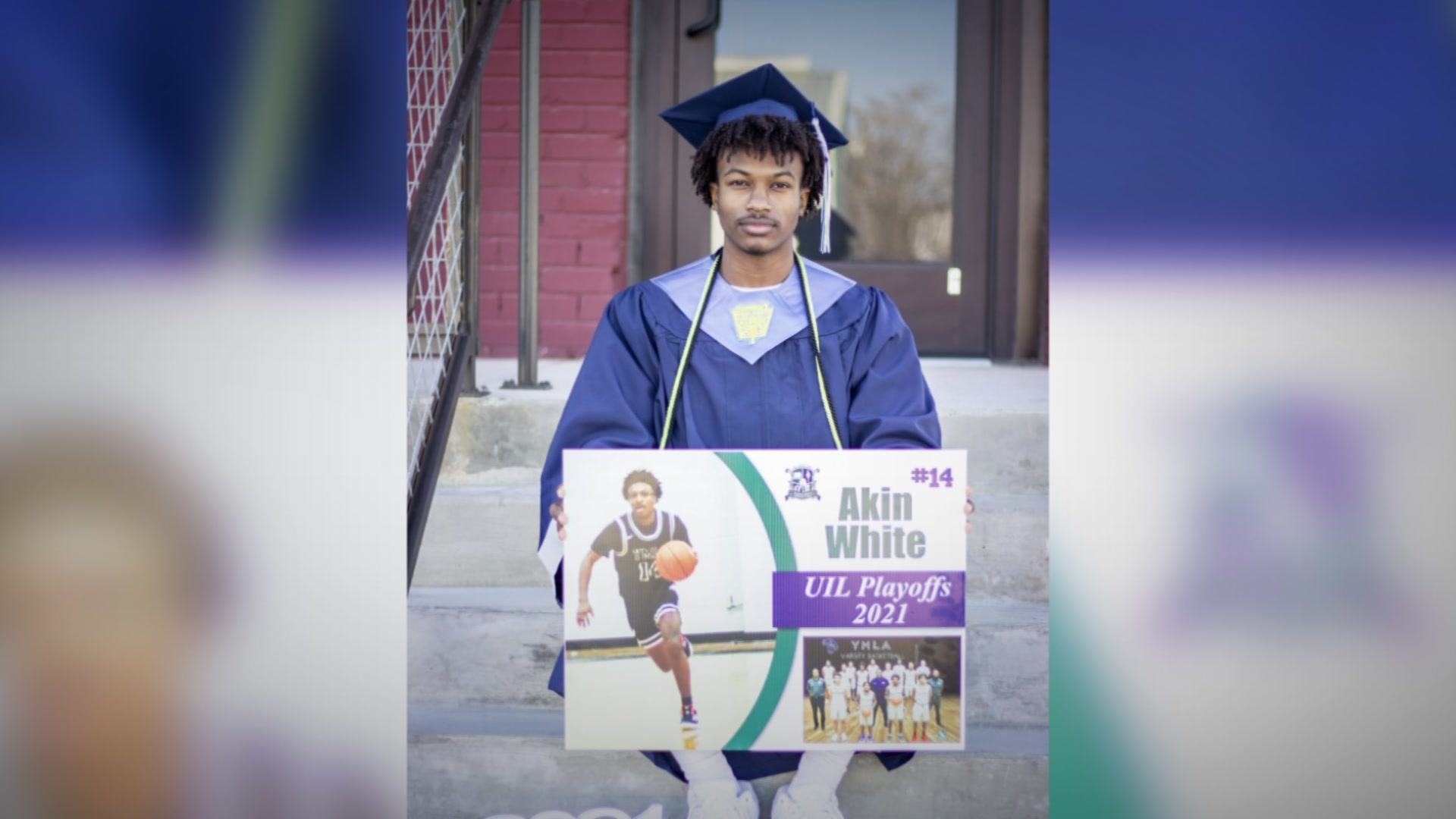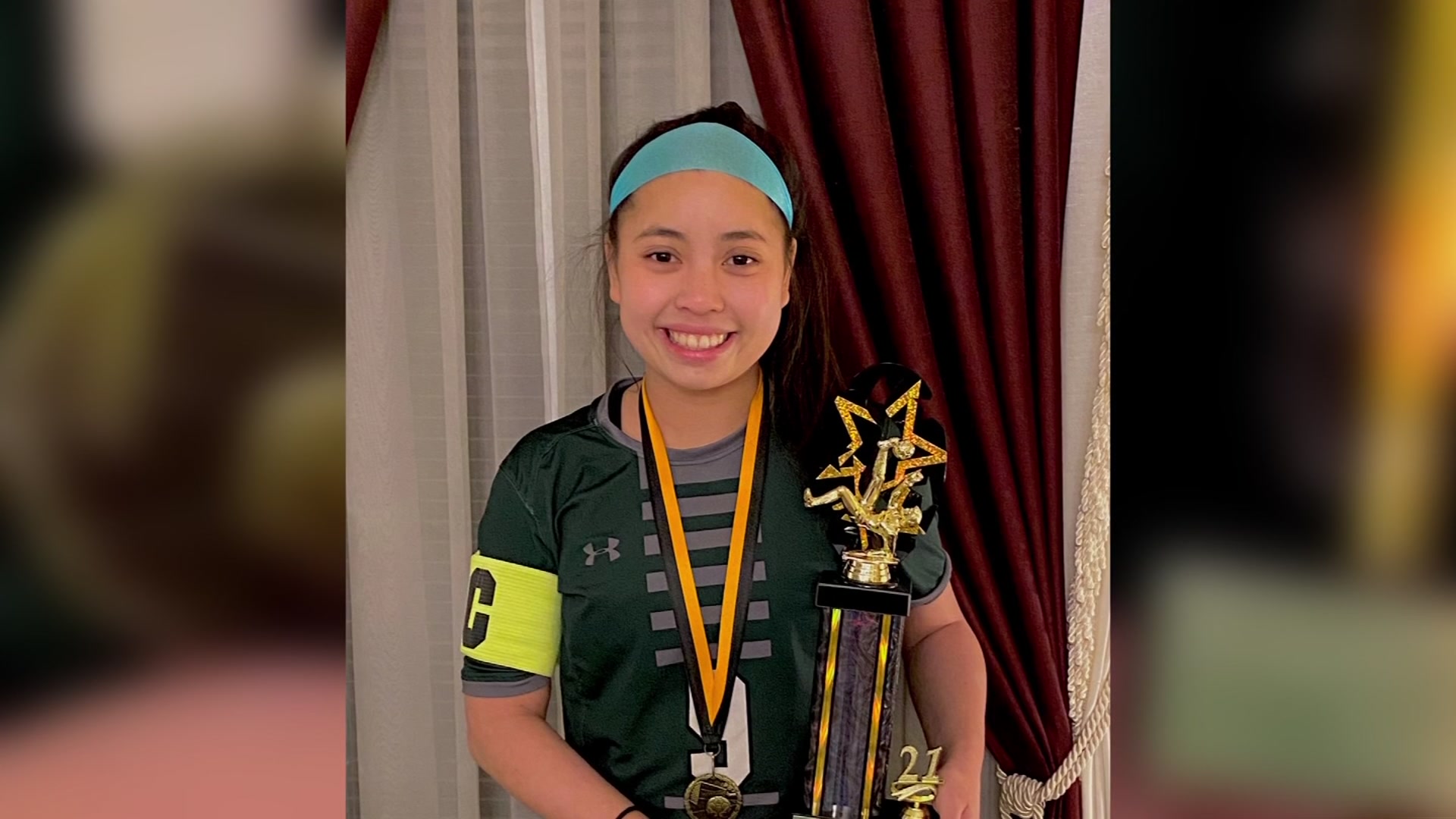The word most often used to describe Grapevine High School senior cross country runner Tiblets Abreha is resilient.
"I can't waste this opportunity," Abreha said. "You have to do your homework. That's why I go to school. I came from far away to here, and having a good education is very important to me."
Abreha only recently began to thrive as a runner at Grapevine when her foster parents encouraged her to give the sport a chance, something that did not immediately result in success.
"It was rough," said Cynthia Becker, Abreha's foster mom. "She was really slow, but she's just made tremendous progress."
Get DFW local news, weather forecasts and entertainment stories to your inbox. Sign up for NBC DFW newsletters.
"For two weeks, I couldn't walk, and I told them I was going to give up," Abreha said. "They said this is your first year, just try it until the end of the month. I listened to them and I'm glad I did."
That "don't quit" spirit is a reflection of what she has overcome to get to this moment.

After living in poor conditions in a small village in the African country of Eritrea, Abreha, then just 10-years-old, escaped the extreme poverty and political persecution and traveled through treacherous terrain before crossing into Ethiopia, where she lived in a refugee camp for three years before being relocated to the United States.
She said she often thought about how different her life would be had she not fled.
"I would probably have three kids by now, married to someone who I had never met, and just have a family, husband, be a wife, cook and clean in the house," Abreha said. "Now I have education and can choose whatever I want to do. It's really amazing."
Now, five years later, Abreha has gone from not knowing a word of English to a 3.70 GPA student and a competitive cross country runner, headed to the University of North Texas in the fall, and she eloquently described that remarkable journey from poverty to the American dream in an essay sent as part of her NBC 5 Wingstop Scholar Athlete of the Month application:
"This is my story.
Extreme poverty. Leaving home at age 10. Refugee camp. Coming to the US with no English. Three different foster families. I made it through all of this. I am a survivor.
I grew up in a small and impoverished Eritrean village. It is surrounded by trees and mountains. People live there by farming. Our hope is from God. Water is scarce. If it does not rain, the farm gets dry and we would starve. If it does not rain, we can't water the farm because we wouldn't have enough water to drink. We didn't even have a toothbrush to brush our teeth. People in my village are so poor that they marry off their daughters at the age of 14 or 15 because they can't feed them. My older brothers and sister left the village because they had no opportunities to pursue their dreams given the poverty and dictatorship of Isaias Afewerki. I didn't want that for myself.
In 2013, early in the morning, I picked up my school backpack like I was going to school and headed to Ethiopia. I didn't tell my parents I was leaving. My eyes started to tear up. My heart was beating fast like I was going to die. I knew if I crossed the border there was no way to go back. It was sunny and I was very thirsty. After I walked for an hour, I saw a small puddle of water, but the water was very dirty. I drank it. My whole life I grew up with dirty water. I climbed the mountains. I prayed hyenas wouldn't find me, because all around me were tall trees. Hyenas are always hidden in trees.
I arrived at the border where the Ethiopian soldiers live. They welcomed me and I stayed there for three days until they processed who I was. The people who took me to the refugee camp came with a huge truck and I started my journey. Later that night the driver needed to take a break so he put me in a walled prison yard and he went somewhere to take care of his business. A soldier stood near me with his weapon like I was going to run.
I couldn't sleep because of the hard floor, the traffic, and the noisy dog in the neighborhood. Nothing to fold or make the bed when I got up. Pigs shared the space with me. We had a competition every morning to see who gets the trash food first. There was a lady with her child there too. The child had a biscuit and she started to throw it away to the pigs, but I couldn't let the pigs eat the whole biscuit. I was there for three days. I was hungry, cold, and scared.
The next three months I spent in a place called Indaba Guna while I waited to be sent to the refugee camp. I shared a large room with about 100 women and children with mattresses all over the floor and my job was to remind them to clean up and give them their breakfast biscuit.
I arrived at the refugee camp and started living with 10 kids from different backgrounds in a tiny house. There weren't enough beds for us all, but we all had blankets. Water and soap were scarce. One of my friends committed suicide. Even though it was difficult to live without my parents, it gave me the courage to care for myself, and I had consistent access to food, church, and school.
After 3 years of living in a refugee camp, my case manager told me I was going to America. My heart jumped like a frog. The people who worked with the program took me to the airport. However, because I had never been to a fancy place like the airport, when I arrived there I thought I was in heaven. I stood there looking at people going back and forth. I didn't know anything about planes. There was a man with me to help me throughout the plane ride. Next thing I knew the plane started moving.
When it took off my heart jumped. I didn't think I was going to make it. And I certainly didn't know what to do with the socks because I hadn't ever had a pair before. I was scared to eat the strange food they gave me.
My journey took 3 days to come to Texas. I had no idea where I was. By the Almighty God, I arrived safely, but the challenge was that I didn't know any English. When people started talking to me I couldn't respond.
I began my new life with people I had never seen - different languages, and different cultures. They started talking to me and introduced themselves. I couldn't respond because I didn't know what they were saying. But I was very overjoyed because I heard America was a great place.
A month later school started. First day of school in America. My foster mom drops me off at school. I don't remember what class was my first period, but someone from the front desk took me to class. I was sitting there and students kept coming one by one. I got scared. I was the only person who didn't speak English. The teacher started talking, but I had no idea what he was saying. Class over, students left for their next class, but I was sitting there wondering where the students were going. Where I grew up, we sat in one classroom and the teachers switched.
The teacher came to me and took me to my next class. All my teachers were told that I didn't speak English, so they started to take me to my next class. Weeks later students asked me how old I was. I said 50 instead of 15, they started to laugh. I had no idea why they were laughing
After 3 years of living in my first foster home, I moved because I was uncomfortable. First of all, I didn't have help with school. And at the time I really needed help because I couldn't understand the material. Education is really important to me because I did not have a chance to educate myself when I was a kid. Both my foster parents worked at night and slept during the day time, so I fed myself too. I didn't have a good relationship with them at all.
I moved and I started all over again with new foster parents at the Percy House. The Percy house is basically for kids who don't have a family or house and it only holds 7 kids from different countries, beliefs, and races. It was tough for the first time to get used to them, but after a while, we became one family. A year later, my case manager told me I had to move.
Now I am in my third foster home and third high school. It has been a challenge to move from place to place, make friends, get used to new family and school. But I am a survivor."
"She's been through some struggles, but there's a force within her that I think a lot of us are yet to see," said Becker.
A force within her with a future that is extremely bright, for a senior most often described as resilient, who has been on a remarkable journey toward her dream.

Congratulations to Tiblets Abreha, our Wingstop Scholar Athlete of the Month.



